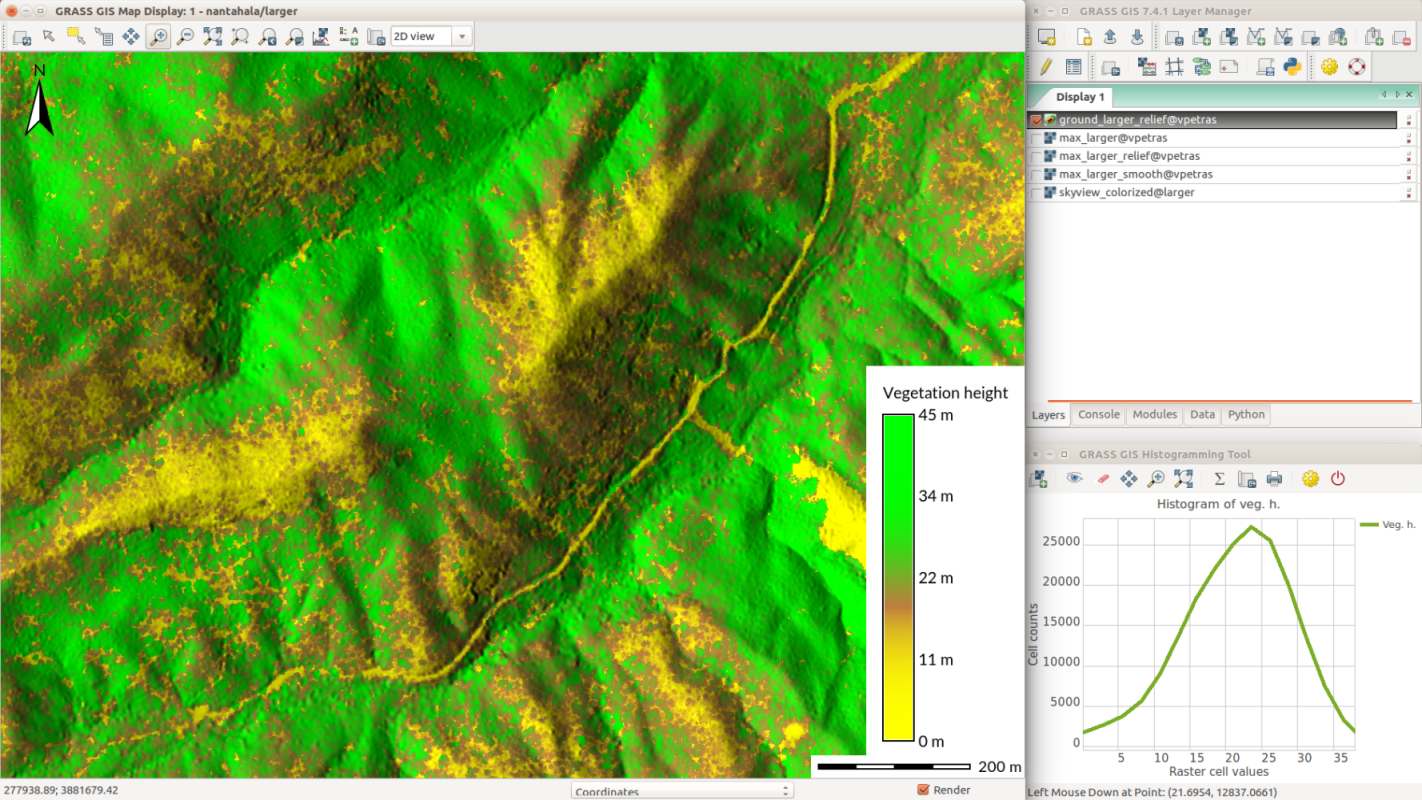GRASS GIS 7.4.3 released
GRASS GIS 7.4.3 released
**We are pleased to announce the **GRASS GIS 7.4.3 release****
 What’s
new in a nutshell
What’s
new in a nutshell
The new update release GRASS GIS 7.4.3 is a hotfix release for only two issues discovered in the previous stable version 7.4.2. An overview of the new features in the 7.4 release series is available at New Features in GRASS GIS 7.4.
As a stable release series, 7.4.x enjoys long-term support.
Binaries/Installer download:
- winGRASS 7.4.3: 32bit standalone installer | 64bit standalone installer
- winGRASS 7.4.3 OSGeo4W: 32bit OSGeo4W installer | 64bit OSGeo4W installer
- Debian
- EPEL6 (CentOS6, RHEL6, ...)
- Fedora and EPEL7 (CentOS7, RHEL7, ...)
- ubuntugis-unstable (Ubuntu LTS - Bionic, Xenial) | grass-stable (Ubuntu non-LTS)
- Max OS X (fully bundled binaries)
- *... further binary packages for other Linux distributions will
follow shortly, please check at software
downloads.
*
Source code download:
- https://grass.osgeo.org/grass74/source/
- https://grass.osgeo.org/grass74/source/grass-7.4.3.tar.gz
- To get the GRASS GIS 7.4.3 source code directly from SVN, see here.
More details:
See also our detailed announcement:
https://trac.osgeo.org/grass/wiki/Release/7.4.3-News
https://trac.osgeo.org/grass/wiki/Grass7/NewFeatures74 (overview of new 7.4 stable release series)
https://grass.osgeo.org/grass7/manuals/addons/
(list of available addons)
First time users may explore the first steps
tutorial after
installation.
About GRASS GIS
The Geographic Resources Analysis Support System (https://grass.osgeo.org/), commonly referred to as GRASS GIS, is an Open Source Geographic Information System providing powerful raster, vector and geospatial processing capabilities in a single integrated software suite. GRASS GIS includes tools for spatial modeling, visualization of raster and vector data, management and analysis of geospatial data, and the processing of satellite and aerial imagery. It also provides the capability to produce sophisticated presentation graphics and hardcopy maps. GRASS GIS has been translated into about twenty languages and supports a huge array of data formats. It can be used either as a stand-alone application or as backend for other software packages such as QGIS and R geostatistics. It is distributed freely under the terms of the GNU General Public License (GPL). GRASS GIS is a founding member of the Open Source Geospatial Foundation (OSGeo).
The GRASS Development Team, November 2018